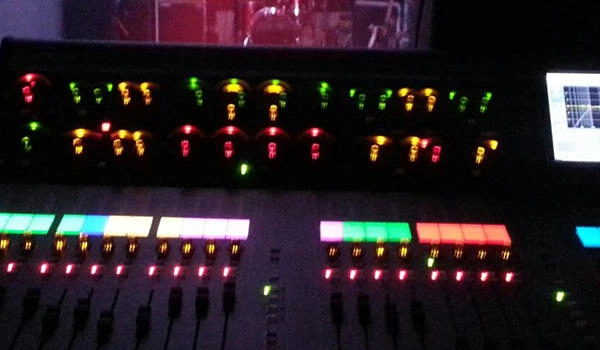
“No other university was able to offer the same level of support in setting me up for a job in industry.”
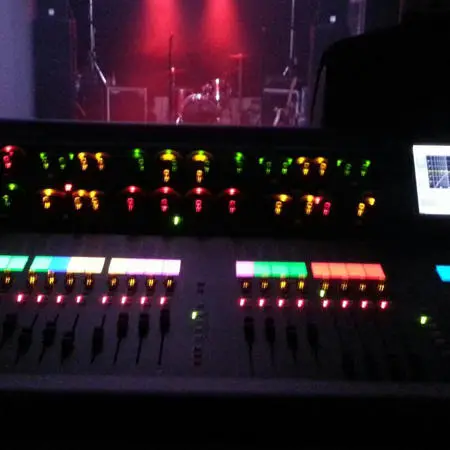

Love music, live shows and technology? With this course, you'll learn to mix sound, build stages and run gigs at major UK festivals like Glastonbury and Boardmasters. Turn your passion into a career.
Contact international admissions
Email: Call:The live events and audio industries are evolving rapidly, with advances in sound, broadcast, and immersive technology reshaping everything from festivals and concerts, to flagship sports and corporate productions. This hands-on degree equips you with the technical skills and creative expertise to thrive as a live event and audio engineer - meeting the industry’s demand for skilled professionals who can deliver world-class experiences.
Across your studies, you’ll build specialist skills through practical learning in our state-of-the-art facilities, including a 29-speaker Dolby Atmos Cinema, HD outside broadcast vehicle, and 10-meter wide Virtual Production screen within our live event space. You’ll gain a high level of working knowledge in specifying, installing, operating, and optimising audio, video, and lighting systems, with a particular emphasis on sound engineering for live music, broadcast, and mixed-media events.
The course combines a strong technical foundation with real-world experience. Students regularly get the opportunity to work at the UK’s best music festivals and sporting events - including Glastonbury, Boardmasters, and Camp Bestival - building confidence, industry contacts, and employability. You’ll also experience the unique pressures of delivering professional live broadcasts and large-scale shows, preparing you for the fast-paced demands of the industry, and come out with a degree with a reputation that big employers trust.
This course is part of the South Coast Institute of Technology (IoT), a partnership of colleges, universities and industry-leading employers to create new career opportunities in the technology sector. IoT courses like this one are precisely tailored to the needs of employers in the maritime, engineering and digital industries – industries which are hungry for talented new engineers, technologists, technicians and creatives like you.
Part of:

Institutional member

Our BSc (Hons) Live Event and Audio Engineering is perfect if you're curious about tech, love solving problems, and want to build strong engineering skills. You’ll use those skills in some of the most creative, high-energy places on the planet, from music festivals to sports arenas. You don’t need an engineering background to apply - just a passion for learning, a willingness to tackle challenges, and the drive to turn ideas into real experiences. If you're up for using your numeracy skills now and then to make amazing things happen, this course is for you.
Graduates from this degree will typically go into technical roles within the live events and broadcast industries. This includes the engineers that run broadcast trucks on the road for live sports or Formula 1; engineers that rig, light and mix bands; or technical staff in broadcast operations such as Sky or the BBC.
Hear from Solent alumni who studied one of our media technology degrees about how their studies shaped their careers.
Read more stories
“No other university was able to offer the same level of support in setting me up for a job in industry.”

The University cannot guarantee any particular members of staff will teach specific aspects of the course in the future, but will endeavour to ensure the teaching team maintains their balance of experience and qualifications.
We don't just offer world-class facilities for our BSc (Hons) Live Event and Audio Engineering, we make sure you get real access to them. From day one, you’ll be hands-on with professional-grade equipment in spaces designed for industry-level production.
Professional grade audio production facilities Work in our 96-seat Dolby Atmos-equipped 2K digital cinema, which is specifically designed as a mixing space. You’ll also have access to numerous music studios and production facilities, including a 12-speaker Dolby Atmos for music studio, five fully equipped studios with live rooms, and four mix suites to perfect your sound. TV and film studios Explore one of the largest HD television setups in the South of the UK. These range from traditional studios, where you physically dress the set, to virtual green screen studios using 3D-engine environments, and world-class virtual production studios equipped with tracked cameras, full 3D virtual environments, and LED display technology. Broadcast on the move Live events don’t stay on campus — and neither do you. Our custom-built HD broadcast truck takes your learning on the road. With three broadcast-standard cameras, a digital mixing desk, three camera CCUs and flexible configuration options, you’ll gain real experience filming gigs and live shows.
Broaden your horizons by adding an international dimension to your CV – essential to achieving success in today’s fast-changing, global environment.
Studying, working or volunteering in another country could be the experience of a lifetime. Enhance your degree by developing important global skills such as knowledge of other countries, language skills, intercultural awareness, adaptability and confidence.
For more information, please email international.mobility@solent.ac.uk.
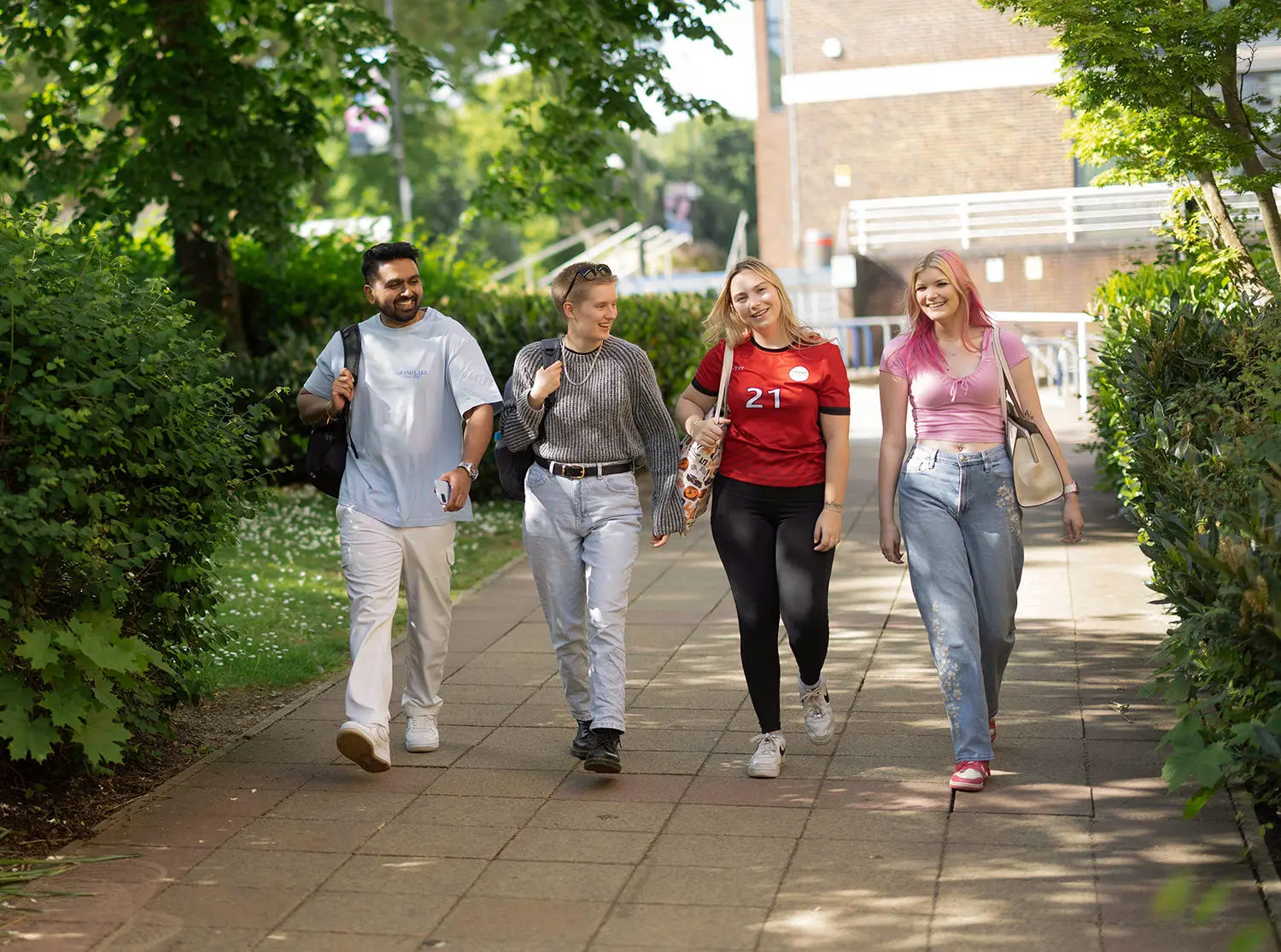
This module combines the audio and video technologies for studios, live events, and post-production. It covers studio setup, camera and lighting systems, event workflows, sound reinforcement, and core skills like mixing, editing, and colour correction.
This module will help you to understand how to quantify and model physical properties and phenomena as well as how to critically analyse observations. You will explore mathematical techniques such as using equations and graphs, and be introduced to functions such as logarithms and sine.
This module does not seek to make a master programmer of everyone, but rather equip you with the skills and knowledge to recognise common issues, talk fluently in the language of computers, and identify computers and computational skills as tools to make your professional and academic life easier and more efficient.
This module will focus on the pipelines for produced content, 3D development and scene building, colour and colour spaces, and how codecs in video work, and how they affect distribution. Visual enhancement refers to the use of advanced visual technologies and design strategies to elevate the aesthetic and functional aspects of live events, performances, and sports experiences.
Through this module you will gain an appreciation of the many factors that need to be accounted for in specifying, configuring and operating professional event systems, and will be able to select tools and techniques appropriate to a variety of contexts, setups and situations encountered.
This module will introduce you to the core concepts relating to small room acoustics, electroacoustic transducers and the typical components of professional audio systems. The module will focus on the interface between components, including how to interpret specifications and design systems according to a design brief that would produce good results.
This module is an exploration of the many facets of project work, from research skills and application of the scientific method, to working effectively in a team, and ensuring you produce excellent and well-presented results. The module is designed for you to have time and control over your learning.
Please note: Not all optional modules are guaranteed to run each year.
This module is structured around experiential, practical learning in a simulated live broadcast environment. Students will take on a variety of roles found in professional outside broadcast (OB) setups, working both individually and as part of production teams. The focus is on learning by doing, allowing students to apply theoretical knowledge directly in realistic scenarios.
In this module you will explore core principles of recording and editing sound effects, and the difference in how you approach sound effect and musical editing for games vs film and TV. You will also learn about the technologies used in games sound and how they have evolved – and how you can use this knowledge to make modern games more efficient.
This module explores the intricate relationship between environment and workflow in sound design, beginning with the conceptual contrast between reality and fantasy. It delves into various methods of sound capture, including Foley, field recording, and ADR (Automated Dialogue Replacement) and dialogue.
Within the module you will explore a range of methods and underlying principles in order to analyse acoustic environments for a range of applications, design appropriate sound reproduction and control systems and quantify the selection of components for a specific system or application.
The module covers advanced production planning, including interpreting technical briefs, scheduling resources, and designing workflows. Students explore systems design and integration across sound, lighting, video, networks, and control, with emphasis on interoperability, signal flow, redundancy, and professional documentation such as schematics and patch plans.
The project module is aimed at allowing you to show off both your technical and your project management skills, and is typically one of the main things that employers are interested in when interviewing for graduate roles. It is important to identify the things that really interest you – the project is a great way to shape your degree to suit your interests and career aspirations.
Contact international admissions
Email: Call:As part of this course, you will study one module at a time, giving you the chance to build a deeper understanding and see the results of your hard work more quickly. With regular assessments and feedback, rather than exams all at once, you’ll also benefit from improved focus, and a more manageable workload.
Learn more about block teaching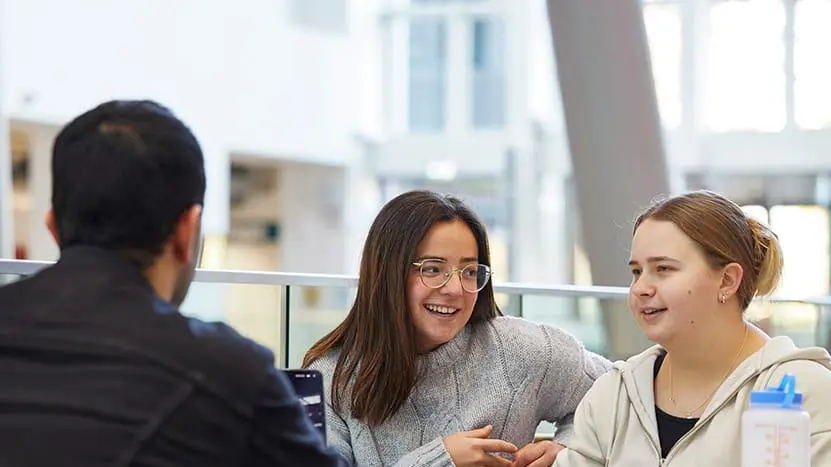
The student achievement team are on hand to help you succeed during your studies at Solent. They aim to contact you at key times during your time here with personalised information, advice and guidance, by email or phone.
The disability advice team provides information, advice and guidance for disabled students.
All students can access Succeed@Solent, Solent's online guide to getting better grades. It offers extensive, practical information and advice on topics such as academic writing, research and presentations.
The UK media technology industry is vibrant, fast-paced, and competitive with the best in the world. Breaking into live events and broadcast opens the door to a high-pressure, hugely rewarding career, one where you help make TV and live experiences happen. It’s a path that can take you across the globe, solving exciting technical challenges to bring unforgettable events into people’s homes.
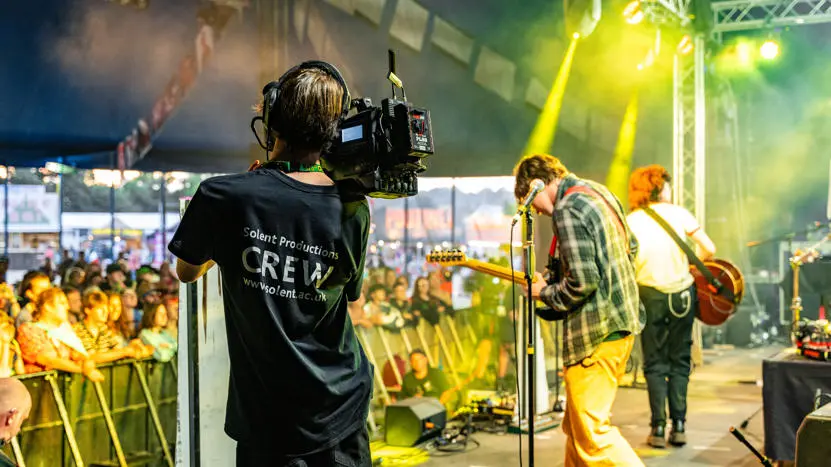
Hear from Solent alumni who studied one of our media technology degrees about how their studies shaped their careers.
Read more stories
“No other university was able to offer the same level of support in setting me up for a job in industry.”

The Solent Careers team is committed to getting students into great careers.
While you are studying, the team can help you with finding work experience or placements, link you with a mentor, check your CV, or offer one-to-one guidance.
We also have graduate job opportunities just for Solent graduates.
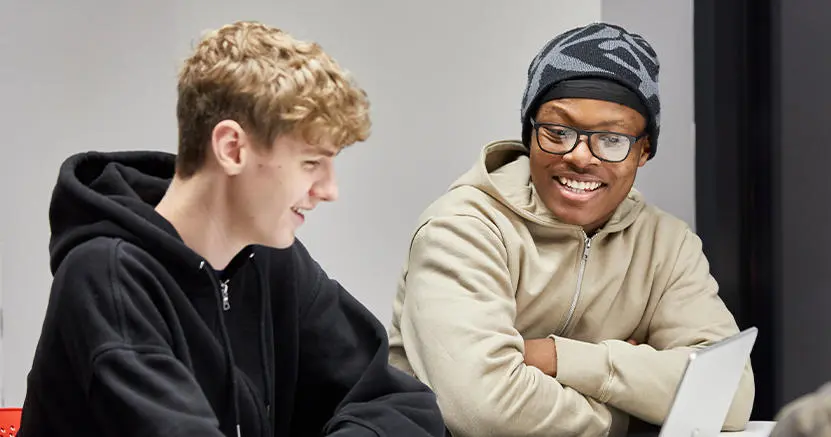
Top 25%
of UK universities for sustained employment
LEO 2025
Every student at Solent University will also have the option to study an additional Certificate in Practical Artificial Intelligence qualification alongside their course. Free of charge, the course ensures you'll be prepared for a fantastic and varied career after graduation.

Thinking about studying further than an undergraduate degree? Alumni can get 20% off their postgraduate study.
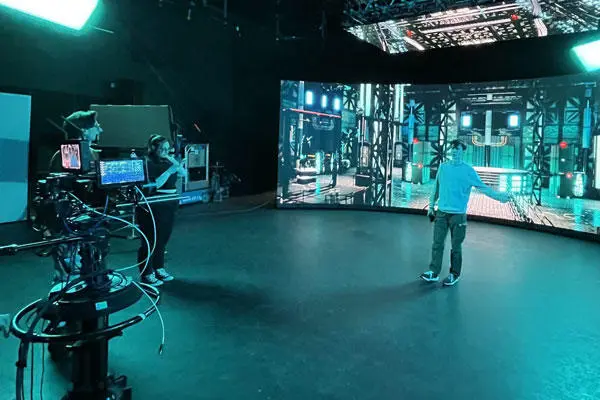
Explore, experiment and learn the industry skills to become a trailblazer in virtual production (VP) and extended reality (XR) using Solent's VP volume, XR green screen studio, Vicon mocap, and body scanner.
Find out more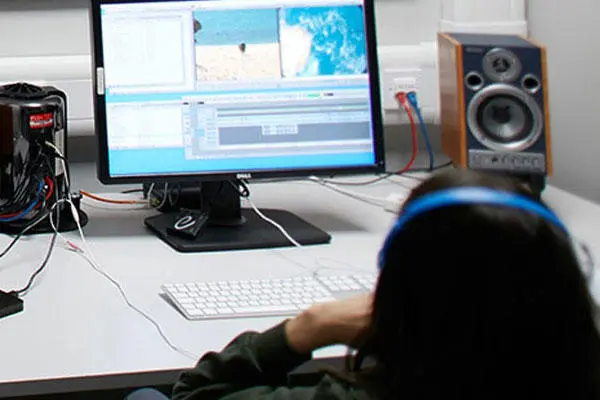
Build your creative post-production skills to make your mark in the film and television industry. Solent’s MA Post Production in Film and Television will see you working with...
Find out more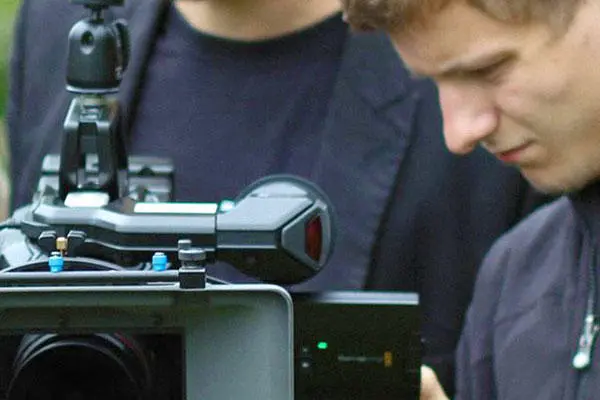
Got a passion for filmmaking? Want to improve your professional showreel and boost your employability? Solent’s MA Film Production programme is ideally suited to students who...
Find out moreThe tuition fees for the 2026/27 academic year are:
For further information, please visit our tuition fees page.
While most course costs are covered by your tuition fees, some essential resources and optional extras may need to be paid for separately. For advice on budgeting and managing your money, please contact student.funding@solent.ac.uk.
The 2026/27 additional costs are not yet available. For guidance, previous additional costs have been:
Compulsory costs
There are no compulsory production costs that you are required to meet in order to fully participate on the course, however costs can be incurred against production expenses, particularly for final major projects.
Solent University offers a range of bursaries and scholarships that provide financial assistance or waive fees for tuition or accommodation. Each bursary or scholarship has specific eligibility criteria. Check out our bursaries and scholarships pages to find out more.
Cost of living support
At Solent, we understand that the cost of living crisis may be of some concern. To help, we've put together some detailed information to show what support is available and how to make your money go further.
Graduation costs
There is no charge to attend graduation, but you will be required to pay for the rental of your academic gown (approximately £45 per graduate, depending on your award). You may also wish to purchase official photography packages, which range in price from £15 to £200+. Graduation is not compulsory, so if you prefer to have your award sent to you, there is no cost. Extra guest tickets will go on sale after results publication and will be sold on a first-come-first-served basis. The cost per ticket is currently £20. Please note, we do not guarantee there will be any extra tickets available to purchase.
Contact international admissions
Email: Call:Please select an option below:
As a general guide, we look for qualifications that are equivalent to the British high school A-levels.
If you are applying from outside the UK, find information about entry requirements, visas and agents for your country here.
For further information about EU qualifications, please see our course entry requirements document.
As a general guide, we look for qualifications that are equivalent to the British high school A-levels.
If you are applying from outside the UK, find information about entry requirements, visas and agents for your country here.
For further information about international qualifications, please see our course entry requirements document.
All international applicants need to be aware that the English language requirements to attend Solent University, and the English language requirements to obtain a visa from the Home Office, may be different. This means that if you meet the Solent University language requirement to gain a place on the course, you may still have to meet additional requirements to be granted with a visa by the Home Office.
We strongly advise all applicants to visit the Home Office website which outlines all the requirements for a successful visa application.
Full-time
Any student applying for the first year of a full-time/sandwich undergraduate course must apply through UCAS (University and Colleges Admissions Service). This includes mature, overseas and EU students.
Nearly all schools and colleges offer their students the facility of applying electronically through the UCAS website using 'Apply'; it may also be used by those applying independently in the UK and overseas. This facility and all course information can be found on the UCAS website: www.ucas.com.
Your application should reach UCAS by 14 January if you hope to enter a course the following autumn. Early application is advised for the most popular subject areas. Late applications may be made until the end of June. The UCAS Code for the University is S30, code name SOLNT.
Find out what happens after you apply
Contextual offers
Solent endeavours to offer learning opportunities to students from all backgrounds. When we receive and review an application, we take into consideration the context and personal circumstances of applicants when making a decision, which means our advertised entry tariff could be reduced.
Find out more about Solent's contextual offers
Applicants who do not have English as their first language will be required to demonstrate an approved level of proficiency in the use of the English language. The agreed minimum requirements for this course are:
TOEFL IBT tests taken prior to 21 January 2026
TOEFL IBT tests taken from 21 January 2026
Qualifications are checked before enrolment, and international students must bring their original certificates or certified copies when coming to study at the University.
Pre-Sessional English programme
The University also offers a pre-sessional English programme for international students who wish to improve their level of English before starting a degree course.
Contact international admissions
Email: Call: